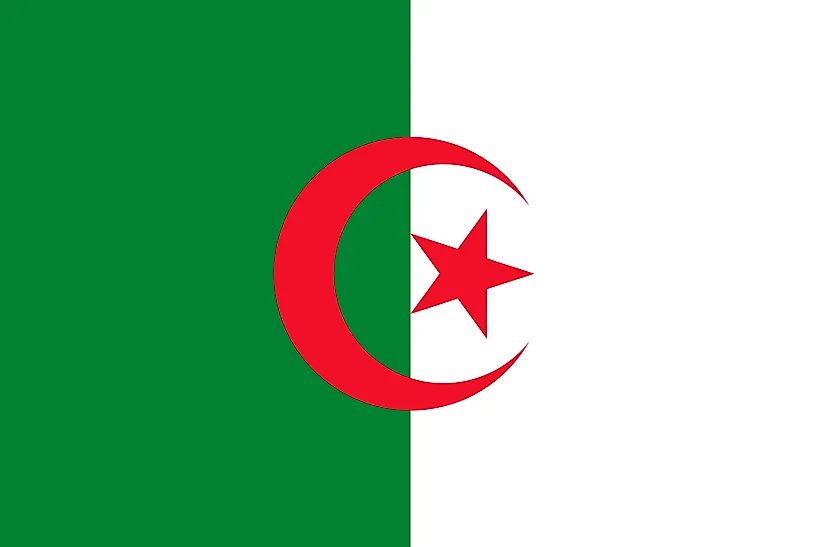
Algeria
| Continent | Africa |
| Capital | Algiers |
| Population | 40,263,711 |
| GDP | $609.00 Billion |
| GDP per Capita | $15,000 |
| Dialing Code | +213 |
| ISO Code (2-letter) | DZ |
| ISO Code (3-letter) | DZA |
Algeria Landscapes






About Algeria
Welcome to Algeria, the largest country in Africa and a land of extraordinary contrasts. Spanning an impressive 2.38 million square kilometers, this North African nation combines Mediterranean coastline, Saharan desert, and Atlas Mountains to create a uniquely diverse landscape. With a population of over 44 million people, Algeria stands as a bridge between Africa and the Mediterranean world, offering visitors a rich tapestry of cultural heritage, natural wonders, and historical significance.
Geographic Features and Natural Beauty
Algeria’s geography is a study in dramatic contrasts. The northern Mediterranean coastline stretches for over 1,600 kilometers, featuring beautiful beaches, rocky cliffs, and historic coastal cities. The Tell Atlas and Saharan Atlas mountain ranges create natural barriers between the Mediterranean region and the Sahara Desert, which covers about four-fifths of the country.
The Sahara Desert portion of Algeria contains some of the world’s most spectacular desert landscapes, including the Grand Erg Oriental and Grand Erg Occidental, vast seas of sand dunes that stretch to the horizon. The Hoggar Mountains in the southern Sahara present an otherworldly landscape of volcanic peaks and ancient rock formations, including the famous “Cathedral Mountain” of Assekrem.
In the north, the fertile Tell region supports most of the country’s agriculture and population centers. The region’s Mediterranean climate nurtures olive groves, citrus orchards, and vineyards, creating a stark contrast to the arid south.
Cultural Heritage and Traditions
Algerian culture is a fascinating blend of Arab, Berber, and French influences, creating a unique identity that sets it apart in North Africa. The country’s rich cultural heritage is evident in its music, art, architecture, and daily life. Traditional Algerian music, particularly Raï, has gained international recognition and influence.
The country’s traditional crafts, including carpet weaving, pottery, and metalwork, reflect centuries of artistic excellence. The medinas (old cities) of Algeria, particularly in cities like Constantine and Tlemcen, preserve traditional architecture and ways of life that have endured for centuries.
Algerian cuisine is renowned throughout North Africa, combining Mediterranean, Middle Eastern, and African influences. Couscous, the national dish, exemplifies the country’s culinary heritage, while traditional pastries and mint tea reflect the importance of hospitality in Algerian culture.
Historical Journey
Algeria’s history spans millennia, from ancient Numidian kingdoms through Phoenician, Roman, Arab, Ottoman, and French periods. The ancient Roman ruins at Timgad and Djémila stand as testament to the country’s classical heritage, while medieval Islamic monuments like the Great Mosque of Tlemcen showcase its Islamic golden age.
The country’s modern history has been significantly shaped by its struggle for independence from France, achieved in 1962 after a long and costly war. This period has left an indelible mark on Algerian society and continues to influence its national identity and international relations.
Modern Economic Landscape
Today’s Algeria is one of Africa’s largest economies, primarily driven by its substantial hydrocarbon sector. The country possesses significant reserves of oil and natural gas, making it one of the world’s major energy exporters. However, Algeria is actively working to diversify its economy, investing in renewable energy, agriculture, and technology sectors.
The country has made significant strides in infrastructure development, education, and healthcare. Major projects include the East-West Highway, one of Africa’s largest infrastructure projects, and investments in renewable energy, particularly solar power in the Sahara.
International Relations and Global Position
Algeria plays a crucial role in regional and international affairs. As a key member of the African Union, Arab League, and OPEC, Algeria maintains significant influence in African and Arab world politics. The country has traditionally acted as a mediator in regional conflicts and continues to advocate for African and Arab causes on the international stage.
Did You Know?
• Seven of Algeria’s cultural and natural sites are UNESCO World Heritage listed, including the stunning Casbah of Algiers?
• The Sahara Desert in Algeria was once a lush savanna with rivers and lakes, as evidenced by prehistoric rock art in Tassili n’Ajjer?
• Algeria is home to seven different species of flamingos, which can be found in the country’s numerous salt lakes?
• The traditional Algerian dress, the Haik, was a source of inspiration for fashion designer Yves Saint Laurent?
Conclusion
Algeria stands as a nation of remarkable diversity and potential, where ancient traditions meet modern aspirations. From its Mediterranean shores to its Saharan depths, from its Roman ruins to its modern cities, Algeria offers a unique blend of experiences that captivate visitors and residents alike. As the country continues to develop and evolve, it maintains its distinctive character while embracing the challenges and opportunities of the modern world.